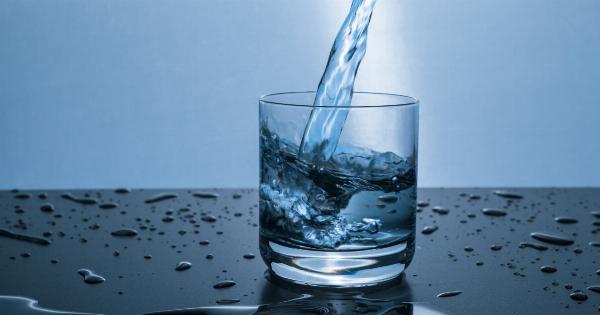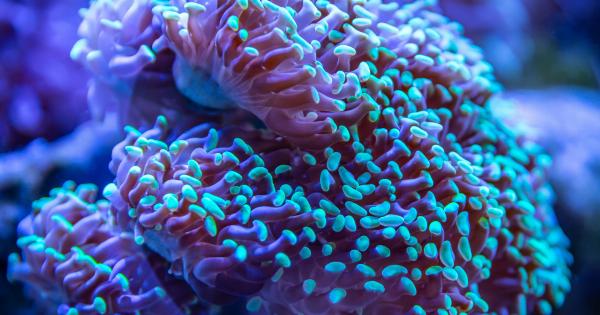Have you ever wondered why staying hydrated is so crucial for our health and well-being? Water is the essence of life, and proper hydration is essential for the proper functioning of our bodies.
In this article, we will uncover the truth about staying hydrated, the benefits it offers, and the consequences of not drinking enough water.
1. Water: The Lifeline of Our Bodies
Water makes up about 60% of our body weight, and it plays a vital role in maintaining our overall health. It is involved in various bodily functions, including digestion, circulation, regulating body temperature, and removing waste.
Without sufficient water, these essential processes can be disrupted, leading to various health problems.
2. The Benefits of Staying Hydrated
Staying hydrated offers numerous benefits for our bodies and minds. Let’s explore some of the key advantages:.
2.1 Improved Physical Performance
Proper hydration is crucial for optimal physical performance. When we exercise or engage in physical activities, we sweat, leading to fluid loss.
If we don’t replenish our bodies with water, it can result in dehydration, causing fatigue, reduced endurance, and decreased performance.
2.2 Enhanced Cognitive Function
The human brain is composed of about 73% water, highlighting the importance of hydration for cognitive function. Studies have shown that even mild dehydration can impair cognitive abilities, including concentration, memory, and mood.
By staying hydrated, we can improve our brain function and maintain mental clarity.
2.3 Promotes Healthy Digestion
Water plays a vital role in maintaining a healthy digestive system. It helps in breaking down food, absorbing nutrients, and preventing constipation. Insufficient water intake can lead to digestive problems, such as indigestion and bloating.
By staying hydrated, we can promote proper digestion and ensure regular bowel movements.
2.4 Boosts Energy Levels
Dehydration can often make us feel sluggish and fatigued. When we’re dehydrated, our bodies work harder to perform basic functions, which can leave us feeling tired and lacking energy.
By drinking enough water throughout the day, we can boost our energy levels, stay focused, and remain productive.
2.5 Supports Skin Health
Our skin is the largest organ in our body, and it requires proper hydration to maintain its health and appearance. Water helps to nourish our skin cells, keep our skin moisturized, and promote a youthful complexion.
Staying hydrated also aids in the detoxification process, flushing out toxins and promoting clear and radiant skin.
3. Signs of Dehydration
It is important to be aware of the signs of dehydration, as it can have adverse effects on our health. Here are some common symptoms:.
3.1 Increased Thirst
Feeling consistently thirsty is one of the earliest signs of dehydration. Your body is signaling that it needs more water to function properly. It is essential to listen to this signal and quench your thirst by drinking water.
3.2 Dark Urine
Monitoring the color of your urine can provide valuable insights into your hydration levels. Dark-colored urine indicates that you need to drink more water as your body is conserving fluids.
On the other hand, light-colored urine is a good sign of proper hydration.
3.3 Fatigue and Dizziness
When your body lacks water, it can lead to feelings of tiredness and dizziness. Dehydration affects your blood pressure and circulation, making you feel weak and lightheaded. Ensure you stay hydrated to prevent these symptoms from occurring.
3.4 Dry Mouth and Bad Breath
A dry mouth and persistent bad breath can also indicate dehydration. Saliva helps to wash away bacteria and maintain oral health. When your mouth feels dry, it may be a sign that you need to drink water to maintain proper salivary flow and oral hygiene.
4. How Much Water Should You Drink?
The amount of water each person needs can vary depending on various factors, including age, body weight, activity level, and climate.
The Institute of Medicine (IOM) recommends a general guideline of about 3.7 liters (or about 13 cups) of fluid for men and 2.7 liters (or about 9 cups) of fluid for women per day.
5. Tips to Stay Hydrated
Staying hydrated doesn’t have to be complicated. Here are some simple tips to help you maintain appropriate fluid levels throughout the day:.
5.1 Carry a Water Bottle
Having a water bottle with you at all times serves as a constant reminder to drink water. Fill it up in the morning and keep sipping throughout the day to ensure you stay hydrated.
5.2 Set Reminders
In our busy lives, it’s easy to forget to drink enough water. Setting reminders on your phone or computer can help you establish a routine and prompt you to hydrate periodically.
5.3 Eat Water-Rich Foods
In addition to drinking water, you can also increase your hydration levels by consuming water-rich foods. Fruits and vegetables like watermelon, cucumber, and oranges are excellent choices that contribute to your overall fluid intake.
5.4 Infuse Your Water
If plain water feels boring, try infusing it with fruits, herbs, or cucumbers to add flavor. Infused water can be a refreshing and enjoyable way to stay hydrated throughout the day.
5.5 Monitor Your Urine Color
As mentioned earlier, the color of your urine can indicate your hydration levels. Keep an eye on its color and adjust your intake accordingly.
6. Conclusion
Staying hydrated is vital for our overall health and well-being. It supports physical performance, cognitive function, digestion, energy levels, and skin health. Be mindful of the signs of dehydration and make an effort to drink enough water each day.
By staying hydrated, we can unlock the potential of our bodies and lead healthier lives.































